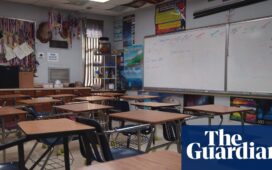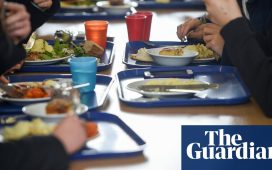
Cal State LA is one of 23 campuses in the nation’s largest public university system.
California’s state universities, the nation’s largest four-year public system, will deliver most of their courses online through the spring semester of 2021. In a September 10 letter to faculty, staff and students, CSU Chancellor Timothy P. White wrote, “We know far more about [the pandemic] now than we did back in May. The virus continues to spread. There is no vaccine and there likely will not be one widely available any time soon.”
White is a scientist who served as a professor of biology and biomedical science at U.C. Riverside before he became CSU’s chancellor in 2013.
CSU has 23 campuses and serves 500,000 students. On May 12 it became the first large U.S. university system to decide to remain mostly virtual for the fall semester. White is the first university leader in California and among the first in the nation to announce that classes would stay online through the spring.
Though instruction has been largely virtual since the fall term began on August 24, virus counts have spiked on some campuses. At San Diego State, more than 400 students have tested positive and the school issued a stay-at-home order for all students that extends through September 14.
Cases also spiked at Chico State where 750 students had moved into dorms and 10% of classes were being held in person. Within a week, 27 cases had been confirmed. On August 30, Chico State President Gayle Hutchinson ordered all classes to switch to remote learning and dorms to close, except for students who would otherwise be homeless.
In his letter, CSU Chancellor White wrote: “testing remains very expensive to conduct repeatedly and meaningfully with rapid results – both of which are necessary to mitigate the spread of COVID-19.”
Even at schools where testing is extensive, cases have spiked. The University of Illinois at Urbana-Champaign was testing its nearly 50,000 students twice weekly using a quick, inexpensive saliva test developed by its own researchers. Classes had started August 24 on a hybrid model. Students were required to wear masks and could only enter campus buildings if an app verified that they had tested negative. But on September 2, the school announced it was imposing a two-week lockdown after 700 students tested positive. Students may still attend class, shop for groceries and attend medical appointments. The spike has been attributed to students, especially members of fraternities, who went to parties after testing positive, which was against university guidelines.
CSU Chancellor White referenced similar student behavior on Cal State campuses. “During the recent Labor Day weekend, there was widespread socialization that, sadly, often did not comport with public health directives,” he wrote. In addition, the wildfires spreading throughout the state are heightening the risk of Covid-19 transmission. “California has entered what has thus far been a horrific fire season,” he wrote, “and the number of evacuations that will force people into congregate [sic] temporary housing could lead to another COVID-19 spike.”
White also said he wanted to give students and faculty time to plan for the spring. “This decision is the only responsible one available to us at this time,” he wrote. “And it is the only one that supports our twin North Stars of safeguarding the health, safety and well-being of our faculty, staff, students and communities, as well as enabling degree progression for the largest number of students.”





